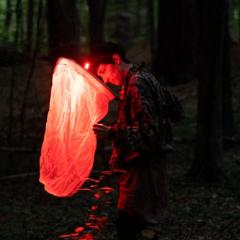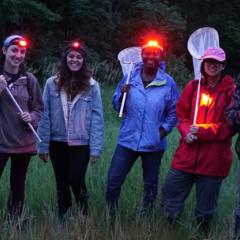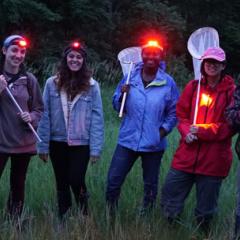About Avalon's Work
Avalon C.S. Owens is passionate about lights — living lights, especially bioluminescent fireflies, and the artificial light that humans impose on the environment. Avalon is working to better our understanding of how artificial light at night affects firefly populations, and what adjustments we might make to our lighting practices to help humans and fireflies peacefully coexist for many generations to come. Fireflies are small, but Avalon believes that they can inspire profound environmental progress: conservative lighting practices that protect charismatic flagship species such as these will benefit all nocturnal creatures, many of which are in dire need of dark nights.
At the Rowland Institute at Harvard, Avalon and her lab members are documenting the myriad ways in which artificial light at night impacts nocturnal flora and fauna. Her lab is also committed to turning scientific recommendations into real world results through public outreach, private consultation, and policy advocacy. Light pollution brought about by improper lighting practices is expensive, wasteful, unsightly, and damaging to human health. It is also one of the few anthropogenic disturbances that could be reversed in an instant, without any residual effects. Because of this, Avalon is hopeful that she will witness major changes to the nocturnal landscape within her lifetime.
Avalon obtained an A.B. in Organismic and Evolutionary Biology from Harvard University, an M.S. in Entomology from National Taiwan University, and a Ph.D. in Biology from Tufts University. She serves on the board of the Zoological Lighting Institute and is actively involved with the International Dark-Sky Association, the Xerces Society for Invertebrate Conservation, and the Cambridge Entomological Club. In her spare time, she enjoys birding, playing board games, making YouTube videos, and building things.


